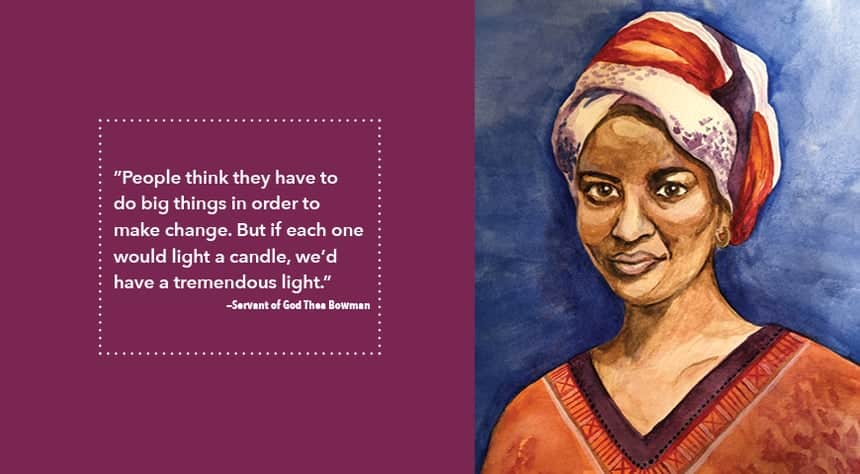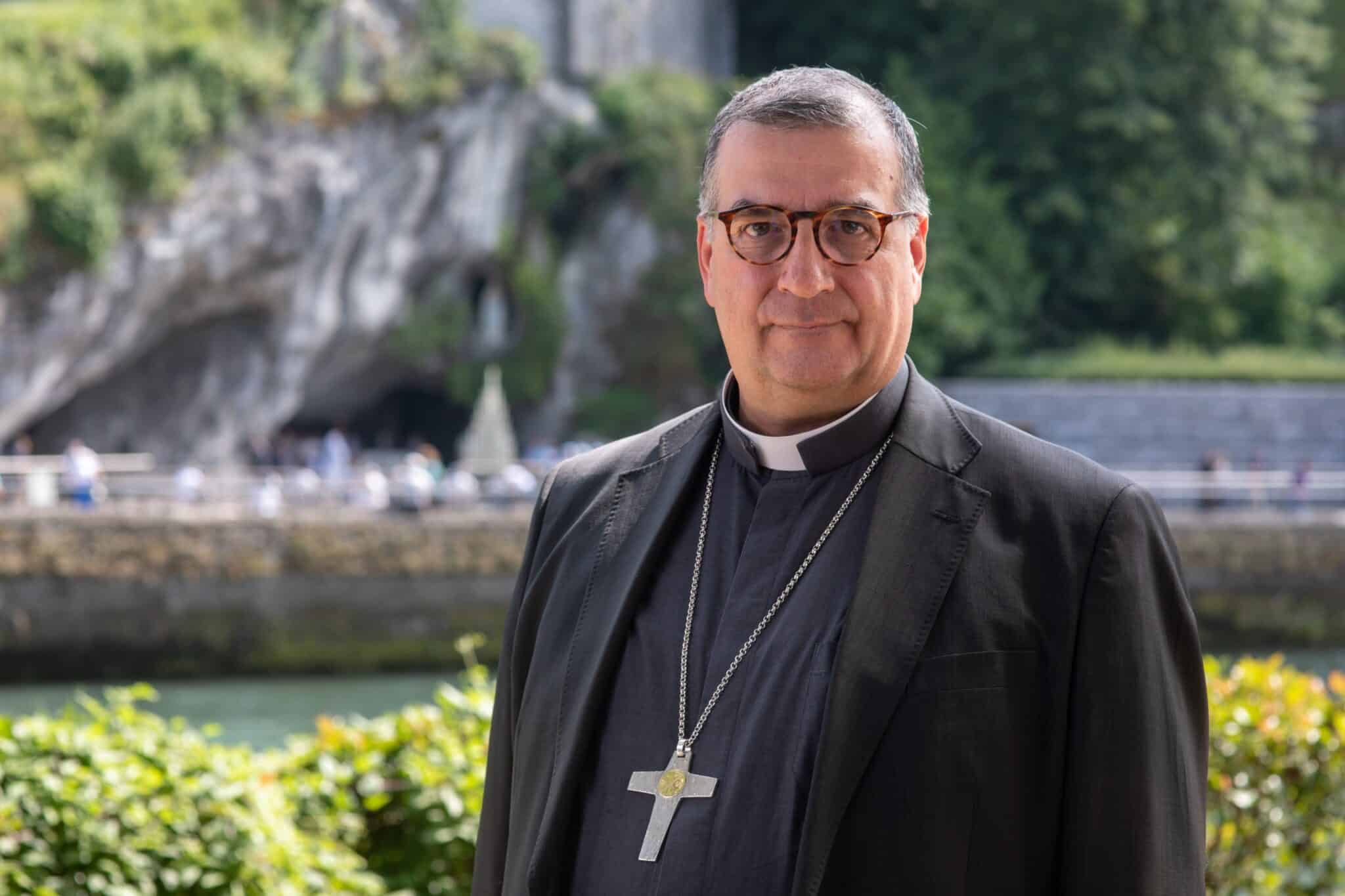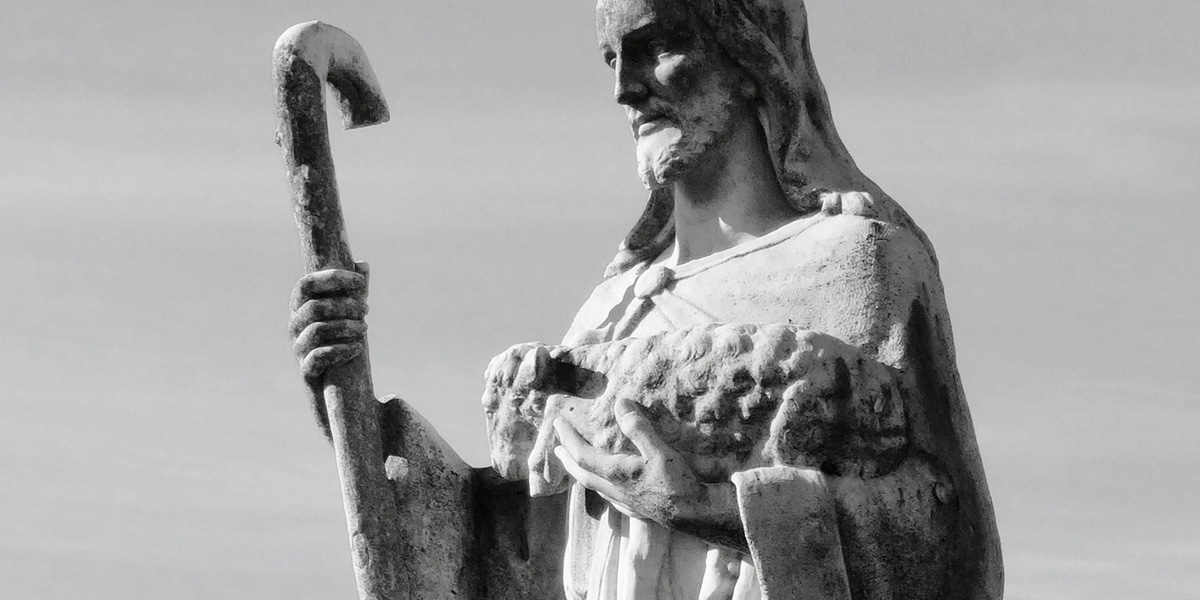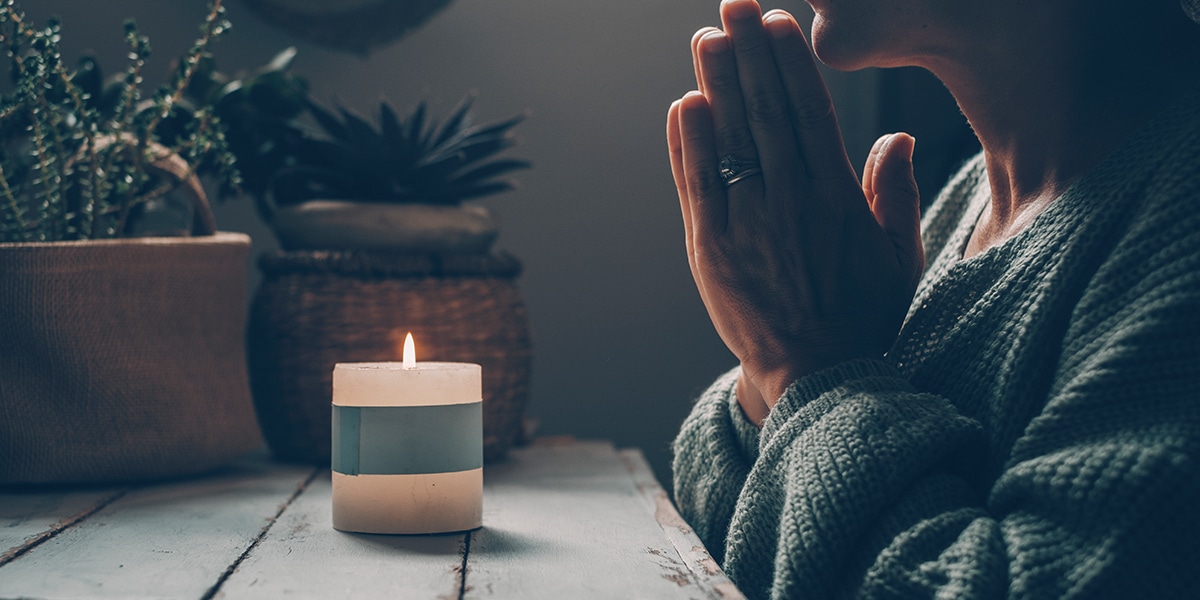I have been thinking a good deal about an amazing woman who did much for the cause of African American Catholicism and indeed for the Church as a whole. That woman is Sister Thea Bowman. Born in Yazoo City, Mississippi, in the dead of winter in 1937, Bowman was the granddaughter of slaves. Her father was a physician, and her mother was a schoolteacher.
The family was Methodist, but the young Thea (then Bertha) Bowman felt an early call to the Catholic Church. At age 9, with her parents’ permission, she converted to Catholicism. Her conversion was inspired by her teachers, who were Franciscan Sisters of Perpetual Adoration and the Missionary Servants of the Most Holy Trinity. At the age of 15, Thea discerned a call to religious life. With the support of her parents and her teachers, she joined the Franciscan sisters and took the name Mary Thea.
The first name was in honor of Our Blessed Mother and the second in honor of Bowman’s father, Theon. After receiving her MA and PhD in English, Sister Thea spent nearly two decades teaching at several Catholic colleges before the bishop of Jackson, Mississippi, invited her to become a consultant on intercultural issues for his diocese.
Sister Thea took on the new role and, over time, the scope of her work spread across the Americas (from the Virgin Islands to Hawaii and Canada) and overseas (in Nigeria and Kenya).
Sister Thea opened space for African American voices within Catholicism, especially in the realm of music. Her influence was central in the publication in 1987 of a new Catholic hymnal, Lead Me, Guide Me: The African American Catholic Hymnal, the first such work directed to the Black community.
Source: NewGroup Media
A Powerful Introduction
I was first drawn to Sister Thea through a video of a speech she gave to the US Conference of Catholic Bishops in 1990, shortly before her death at age 52. Though her body was wracked with cancer, her voice was afire with energy and passion. Her speech focused on economic justice. More than this, it focused on the way that poverty and racism intertwine to become systemic injustices.
“For so many of us,” she said to the bishops, “being Black and Catholic means having come to the Church because education opened the door to evangelization.”
She praised the priests and laywomen in Mississippi who refused to be limited by the bigotry of their time and offered Bowman and her classmates the opportunity to learn and grow as children of God, rather than as second-class citizens.
Holding up a photo of a group of bishops, she reminded the gathering that “to be Black and Catholic means to be intensely aware of the changing complexion of the College of Cardinals. In the world Church, a lotta folks look like me.”
A New Perspective
This is the blessing of Sister Thea. The story of her life has opened for me the rich and varied world of the Church. Her work illuminated the extraordinary variety to be found in global Catholicism and the many ways to mix rich cultural heritages with robust faith.
At her funeral Mass, Cardinal Bernard Law of Boston remarked: “She challenged us to own our individuality yet pleaded for us to be one in Christ. This was her song, and no one sang it more eloquently than Sister Thea Bowman.” Her case for canonization has been brought forward, and in 2018 the US bishops’ conference unanimously approved the advancement of her cause. She has been designated a Servant of God as a first step in that process.
Sister Thea: Pray for us!








